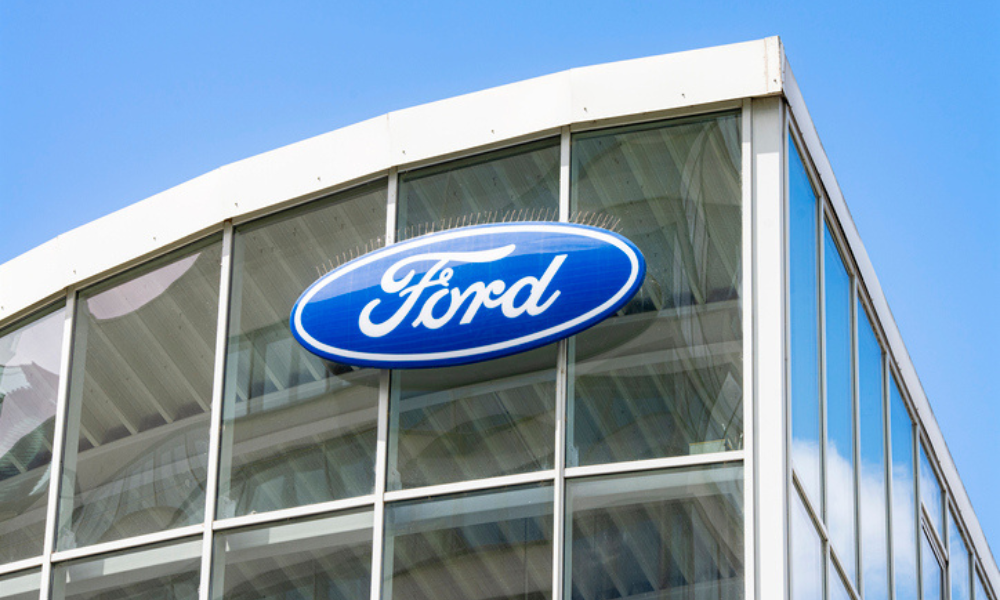
Ford faced lawsuit over allegedly false and misleading fuel consumption claims

The Ontario Superior Court of Justice has dismissed a class-action lawsuit filed on behalf of all customers who purchased and leased 2013 and 2014 model-year Ford vehicles across Canada.
The case of Rebuck v. Ford Motor Company, 2022 ONSC 2396, involves the EnerGuide labels affixed to the 2013 and 2014 model-year Ford vehicles. These EnerGuide labels specify the fuel consumption the cars expect to achieve. Each vehicle’s fuel consumption was estimated to be 24 miles per gallon in city driving and 36 miles per gallon in highway driving.
In addition to the city and highway mpg estimates, the EnerGuide labels advised that the calculations are based on Canada’s approved criteria and testing methods, and the actual fuel consumption of a vehicle may vary.
In January 2016, the plaintiff, Barry Rebuck, filed with the Superior Court against the defendants, Ford Motor Company, Ford Motor Company of Canada Limited, and Yonge-Steeles Ford Lincoln Sales Limited. The class action alleged that the fuel consumption estimates set out on the EnerGuide labels were “false, misleading, or deceptive” under s. 52 of the Competition Act.
In December 2018, the court certified the class action and ordered the issuance of a certification notice to all the class members. Both parties then brought motions for summary judgment. The plaintiff asked the court to rule in favour of all class members, while the defendants sought to have the class action entirely dismissed.
The Superior Court ruled in favour of the defendants and dismissed the class action entirely. Therefore, the class members are not entitled to damages under the Competition Act.
The court noted that s. 52 of the Competition Act only applies where a person “knowingly or recklessly “makes a false or misleading representation. Therefore, the failure to disclose a material fact which can amount to a false or misleading representation does not constitute a breach.
“In my view, the plaintiff has not established a breach of s. 52,” Justice Edward Belobaba wrote.
According to the court, there was no dispute that the fuel-efficiency data generated by the defendants, submitted to the Natural Resources Canada (NRCan), and recorded on the EnerGuide labels were calculated under the “2-cycle test method” as approved and required by the federal government. Therefore, there could be no doubt that the representation set out on each label was “literally true.”
However, the court ruled that a breach of s. 52 had not been proven due to the lack of evidentiary basis for the “general impression analysis” that class counsel advanced. Under s. 52(4), the general impression conveyed by a representation and its literal meaning should be considered in determining whether the representation is materially false or misleading.
The court explained that evidence of “general impression” in misleading advertising cases is often augmented with consumer focus group or survey evidence or by appropriate experts. In this way, in cases where the alleged facial misrepresentation is not inherently obvious, the court can consider and possibly benefit from these additional consumer surveys or expert perspectives.
“Unfortunately, for reasons unknown, class counsel filed just one affidavit on point, that of the plaintiff,” Justice Belobaba wrote. “Recall that the plaintiff’s sole complaint was that the fuel consumption of the 2014 Ford Edge in highway driving was only 23 miles per gallon, which was far worse than the 36 miles per gallon as set out on the EnerGuide label.”
The court noted that one possible “general impression” that could have been advanced, if supported with evidence, was that the EnerGuide label created the expectation that every driver would achieve the estimated 24 mpg/city and 36 mpg/highway.
“But this particular impression − that the ratings on the EnerGuide label showed the actual mileage that would be achieved by all drivers − was retracted by the plaintiff,” Justice Belobaba wrote.
The court found that the plaintiff set out the only “general impression” submission advanced by class counsel in answer to a written interrogatory — “that although fuel consumption would vary, it would vary with an equal probability of coming in a range equal as to above or below depending on driving conditions” and “that the fuel consumption estimate should represent the median experience.”
In other words, class counsel argued that the general impression conveyed by the EnerGuide label ratings was that “the city and highway mpg ratings were intended and understood as median ratings, and every driver would have an equal chance of achieving a fuel consumption that was above or below these medians.”
“To repeat, the only general impression argument advanced by class counsel is the ‘median’ submission as just described,” Justice Belobaba wrote. “But there is nothing on the face of the EnerGuide label and no evidence from any class member, including the plaintiff himself, that supports this ‘median’ submission.”
The court held that class counsel had not established any general impression conveyed by the EnerGuide label that was false or misleading. They also failed to show that by complying with NRCan’s mandatory directions and guidelines, the defendants were “knowingly or recklessly” disseminating false or misleading information.